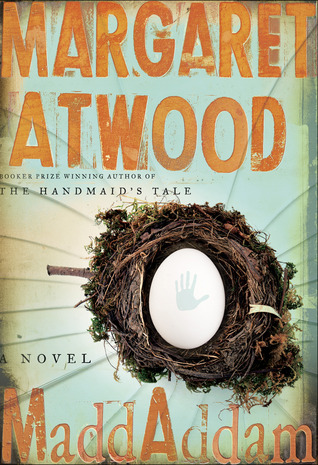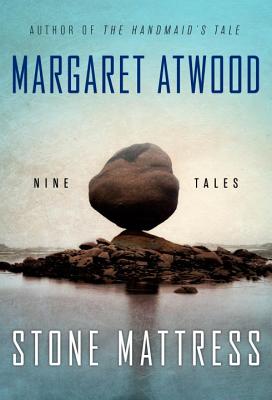Maggie Jane is sitting curled up sideways in an armchair, practically in the fetal position in a wreath of books, already half way through a Junie B. Jones even though we just got home from the bookstore. She doesn't hear me when I call her name. She is oblivious to Kate's interpretive dance performance of the movie Frozen. She is in the zone.
I'm not annoyed that she won't answer me. I'm proud. Catching her in the quiet reading pose feels similar to the welling up of love I get when I go in at night to tuck them back in and kiss them in their sweaty sleep. No matter how many things they've broken that day, no matter how much I've wanted to wring their necks, it's hard not to adore them when they are fast asleep. They can't possibly look more angelic than when they're being so good and so silent!
I know this new habit of hers warms my heart so much because it reminds me of me: I am a reader, and look how the apple doesn't fall far from the tree. But I also have to admit that I really love my daughter's ability to read to herself because it's QUIET.
Peace and quiet have not been much a part of my experience as a mother. Books, on the other hand, have been there for me every step of the way. Maggie was a colicky baby who screamed bloody murder through most of her first six months of life and nursed around the clock. Delirious with fatigue, I started reading all of Agatha Christie's murder mysteries in chronological order starting with The Mysterious Affair at Styles. What else can you do while stuck on the couch all day with a cluster feeding newborn and insomnia-induced poor short-term memory besides whip through And Then There Were None for the 200th time? (I'm still not finished. I'm bogged down in the dreary post-WWII stretch.)
A few years later, Maggie grew into a sensitive, emotional, easily-overstimulated toddler who would launch into epic tantrums over the smallest things. Parking ourselves back on the couch to burn through a stack of her favorite picture books was often the only way to get through the day. And when I couldn't take another second of playing Fairy Princess Mermaid Cats or listen to one more knock knock joke with an esoteric kindergarten punch line, Curious George or the Lorax or Charlie Bucket came to my rescue. Letting my little wild child crawl up into my lap and tuck her curly head under my chin while we shared a book together has been a way for us to forge a quiet bond in the midst of an emotionally turbulent relationship.
At the moment, we are in a short lull between those preschool tantrum years and the impending tweenybopper "I hate you" stage. Things seem to be on a more even keel now that my baby bird has flown the nest. She goes to school every day with her backpack and lunch box. She's in the purple reading group, which is totally her favorite color. She tells me all about the little boy in her class who is SO funny and wonderful that she threw a rock at him on the playground and got in trouble. When we go to the bookstore or the library, she comes home with a short stack of thick chapter books, sits sideways in an armchair, and tunes out the world. Sometimes on Saturdays she and I stay in our pajamas all day, cuddled up under a blanket on that same old couch, reading our books side-by-side, and Mike has to take Kate to the hardware store because her bongo drumming is making us both crazy.
These will be the moments I look back on fondly when she's grown, and this common passion will be one of the things that holds us together when the road gets rocky. She's already got my old copies of Charlotte's Web and Where the Sidewalk Ends. Hopefully this is just the beginning.
Showing posts with label books. Show all posts
Showing posts with label books. Show all posts
Friday, April 11, 2014
Sunday, October 6, 2013
Notes From the Nightstand: MaddAddam
Wendy – friend, librarian, bookworm, and giver of lit-gifts – sent me my copy of Oryx and Crake, the first book in Margaret Atwood's Maddaddam Trilogy, as a Christmas gift several years ago. It's even signed (to me, personally!), which makes it that much more special. Atwood is one of my favorite authors, which is not so surprising because she's simply one of the best writers currently publishing. Some of her books, like The Handmaid's Tale, are already classics. And her more recent work like The Blind Assassin and this current trilogy are brilliant and visionary.
I was immediately swept up in the world and the characters in Oryx and Crake. Atwood is often called a science fiction writer, but I have read that she prefers to call her work speculative fiction, in that everything she writes has already happened, has already been invented, or could easily occur based on current events and research. She simply imagines modern day conflicts carried out to their possible (speculative) logical conclusions, rather then inventing technologies that don't currently exist for a fantasy future world.
The MaddAddam world, for example, is fairly recognizable: it's an America where gated, elite biotech research corporations rule a society that has relinquished it's democracy and public safety in exchange for consumerism and technology. The environment is in serious trouble, the food people eat is barely even food anymore, and god forbid you ever express any dissatisfaction with the status quo. Just play some "reality" computer games and go have your epidermis resurfaced and you'll feel fine!
However, in the very beginning of the beginning of Oryx and Crake, a plague wipes out most of humanity and it's ethically destitute civilization. One of the survivors, Jimmy, tells the story in retrospect of his best friends, the Aspergers-y genius Crake and beautiful but damaged Oryx, in the time before the collapse.
The three books do not have a typical series-style storytelling arc. Most of the criticisms I have seen of this final book, MaddAddam, have to do with people's disappointed expectations that it did not contain some dramatic grand finale plot event. The entire arc of the story is outlined in the first book, which could stand on its own without the other two (and probably was originally intended to). But there's so much more to the story, and I assume Atwood just couldn't put it down without telling the other parts. If the first book is Jimmy's Version of the Story, then the second book is Ren and Toby's Version of the Story, and the third is mostly Adam and Zeb's Version of the Story.
The second book, The Year of the Flood, revisits the catastrophe now known as the Waterless Flood from the viewpoint of a few other survivors. Toby, Ren, Amanda, and Zeb are members of God's Gardeners, an environmental-religious group led by Adam One who come from the urban wastelands that lie outside the walls of the corporation compounds where Jimmy and Crake grew up. The book is fascinating as it gives a view of the world before and after from the other side of the tracks and shows how other people managed to survive the meltdown.
In this new third portion of the story, the recently released MaddAddam, you get all the survivors coming together to try to start putting the world back together. Once again, there's a lot of backstory for some of the characters, particularly Zeb. You also get to see what happens after the point where most apocalypse stories have the hero ride off into the sunset. It's basically all denouement (the resolution portion of a story after the climax wherein all the loose ends are tied up), which is unsatisfying to some people. I, on the other hand, am so in love with the characters that I wanted to see just exactly how they got on with the rest of the world happily/unhappily forever after. It's definitely not a perfect book and not as good as Oryx and Crake or The Year of the Flood, but it served a very specific and important purpose for me, who had read and loved the other two. But it isn't really all tied up neatly in a perfect little trilogy package.
My copies of these books, on the other hand, are tied up neatly in a perfect little trilogy package, because this book is also signed by Margaret Atwood, a matching bookend to my copy of Oryx and Crake. My friend, Amy, to whom I had given The Blind Assassin as a gift - ah, the literary karma! - invited me to go see Margaret Atwood speak in Cambridge last month. Atwood is deadpan and hilarious, both when reading from her work and when answering questions from the audience. She also wore her purse on her shoulder the entire time and had to borrow reading glasses as she had forgotten hers, which cracked us up. She reminded me of Agatha Christie's author character, Ariadne Oliver - a little scattered and eccentric, but very likeable.
So, like author, like book: MaddAddam is also deadpan and hilarious, scattered and eccentric, but very likeable. If you haven't read any of them, start with Oryx and Crake, of course. And if you can't put the story down and walk away from it afterwards, keep going. It's worth it.
Monday, January 30, 2012
In Case You Get Bored Over Here
Oh yeah, I'm still writing and updating my other blog. You know, just FYI and stuff.
Subscribe to:
Posts (Atom)





